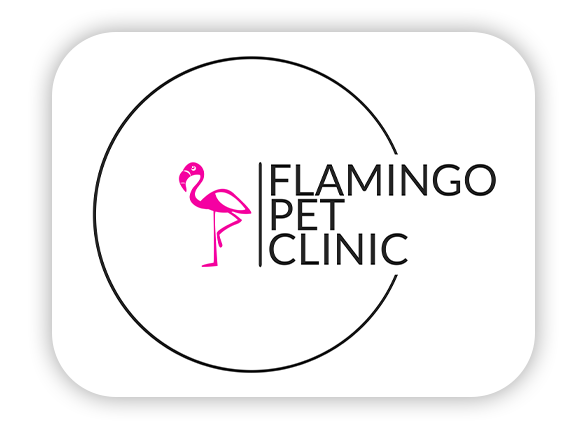Have you recently adopted a chinchilla? These cute little animals are becoming very popular! However, they are quite fragile, and need proper care to thrive. A big part of that is making sure that your little buddy gets proper nutrition. While chinchillas have different care requirements than other exotic pets, the process of bonding with them can be similar to bonding with a hedgehog or other small animals. A Las Vegas, NV veterinarian offers some tips on this below.
Grass Hay
Wild chinchillas eat lots of grass, hay, and twigs, so your pet’s diet should reflect this. Like many other small animals, chinchillas need a constant supply of low-calcium hay. Suitable options include Timothy hay, orchard grass, botanical hay, and meadow hay. Alfalfa is okay as a treat, but shouldn’t be fed too often, as your pet could potentially develop dental problems and/or digestive issues. Store the hay in a cool, dry place, and change it out daily so it doesn’t get moldy. (Tip: you may want to use a hay rack to keep it clean and dry.)
Pellets
Your adorable pets can have grass-based pellets for their main meals. Be careful with portion sizes, as overfeeding chinchillas even by a little bit can cause issues. Ask your vet for advice, including serving sizes and feeding schedules.
Treats
Just like any other animal, chinchillas love treats. These guys often enjoy sweets, but don’t indulge them too much. Dried fruits, such as apple, banana, or pineapple, are suitable, as are raisins, cranberries, and dried rose hips. You can also offer many fruit and berry branches, including blackberry, strawberry, and hibiscus; and certain herbs, such as dandelion, rosemary, and parsley. Just don’t go overboard with sugary treats.
Unsafe Foods
It’s also important to know what isn’t safe. Any type of seeds, grains, or nuts are a definite no, as is anything else that contains lots of fat and/or sugar. Yogurt drops are often sold as chinchilla treats, but you’ll need to be careful with these, because of the high sugar content. Citrus fruits, such as lemons and grapefruit, should also be avoided, as they’re too acidic. Other unsafe foods include corn, chocolate, dairy products, and fruits with a high water content, such as watermelon. Ask your vet for more information.
Tips
Keep an eye out for any signs of potential digestive issues, such as lethargy, bloating, or diarrhea. Contact your vet immediately if you see anything unusual.
Our Advice on Feeding A Chinchilla in 2024
What type of diet is essential for a chinchilla’s health?
To aid digestion and dental health, a chinchilla’s diet should be high in fiber and primarily consist of quality grass hay, like Timothy orchard grass. Supplement this with specially formulated chinchilla pellets for balanced nutrition. Treats should be limited and include safe options like dried fruits and herbs. Avoid sugary, fatty foods and those high in water content. Fresh, clean water should always be available. This diet supports their delicate digestive system and overall well-being. Regular veterinary check-ups are recommended to ensure their dietary needs are met.
Why is alfalfa not recommended regularly in a chinchilla’s diet?
Alfalfa is not recommended as a regular part of a chinchilla’s diet due to its high calcium and protein content. These levels can be too rich for chinchillas, potentially leading to urinary and digestive issues and dental problems. Instead, low-calcium hays like Timothy or orchard grass are better suited for their daily diet, providing the necessary fiber without the risks associated with alfalfa. Alfalfa can be offered occasionally as a treat, but it should be something other than the mainstay of their hay intake.
What treats are safe and enjoyable for chinchillas?
Safe and enjoyable treats for chinchillas include small amounts of dried fruits like apples, bananas, or raisins. They can also have dried rose hips, hibiscus, and certain herbs such as dandelion, rosemary, and parsley. It’s crucial to offer these treats in moderation due to their high sugar content. Avoid sugary commercial treats and fruits with high water content. Always introduce new treats gradually and in tiny quantities to prevent digestive upset. Treats should be a small part of their diet, complementing a primary diet of hay and pellets.
What foods are unsafe for chinchillas and should be avoided?
Unsafe foods for chinchillas include nuts, seeds, grains, and anything high in fat or sugar. Citrus fruits, dairy products, and foods with high water content, like watermelon, should be avoided due to their acidic nature and potential to cause digestive issues. Yogurt drops, despite being marketed as treats, are often high in sugar and not suitable. Corn and chocolate are also harmful. Sticking to a diet primarily of hay and pellets is crucial, with treats kept to a minimum. Always consult a vet before introducing new foods to ensure they are safe for chinchillas.
Why are seeds, grains, nuts, and high-sugar items unsuitable for chinchillas?
Seeds, grains, nuts, and high-sugar items are unsuitable for chinchillas because their digestive systems are not adapted to process these foods. These items can lead to obesity, dental problems, and severe gastrointestinal issues like bloat and dysbiosis. High-sugar foods can also disrupt the delicate balance of their gut flora, leading to digestive upset. Chinchillas require a diet high in fiber and low in fats and sugars, primarily consisting of hay and specially formulated pellets. Feeding inappropriate foods can cause significant health problems for these small pets.
Proper nutrition is just one aspect of caring for exotic pets like chinchillas. Our Exotic Pet Care services cover a wide range of specialized treatments and advice for unique pets, including chinchillas. From dietary consultations to regular check-ups, we’re here to ensure your exotic pet receives the best possible care.
As your local Las Vegas, NV animal clinic, we are dedicated to providing great care. Contact us anytime!
